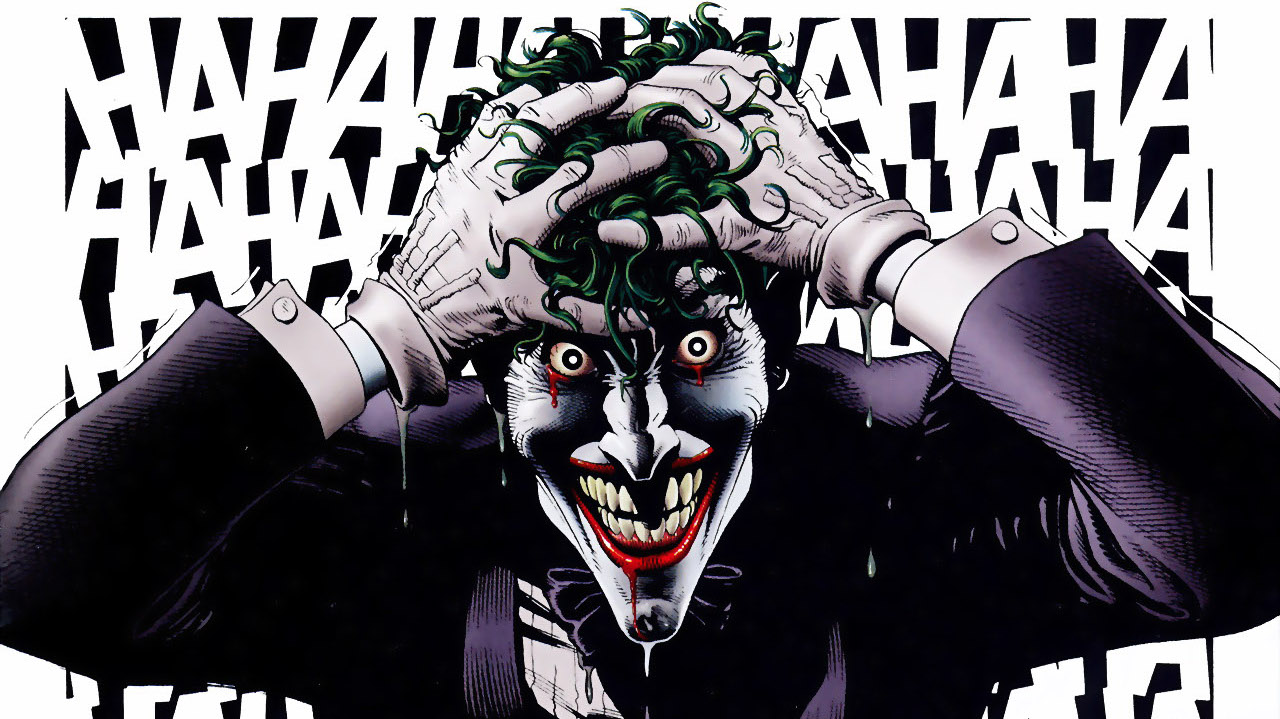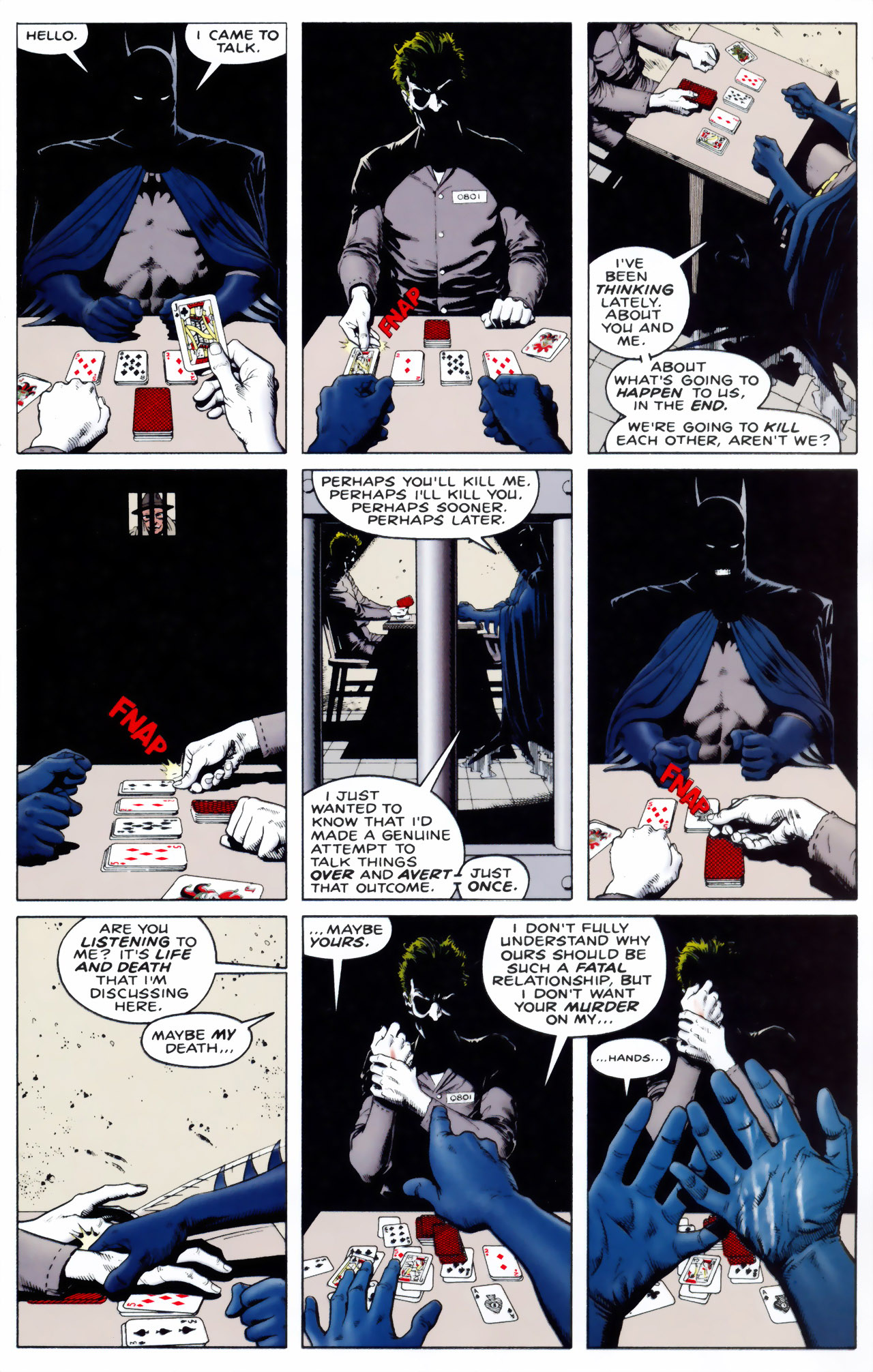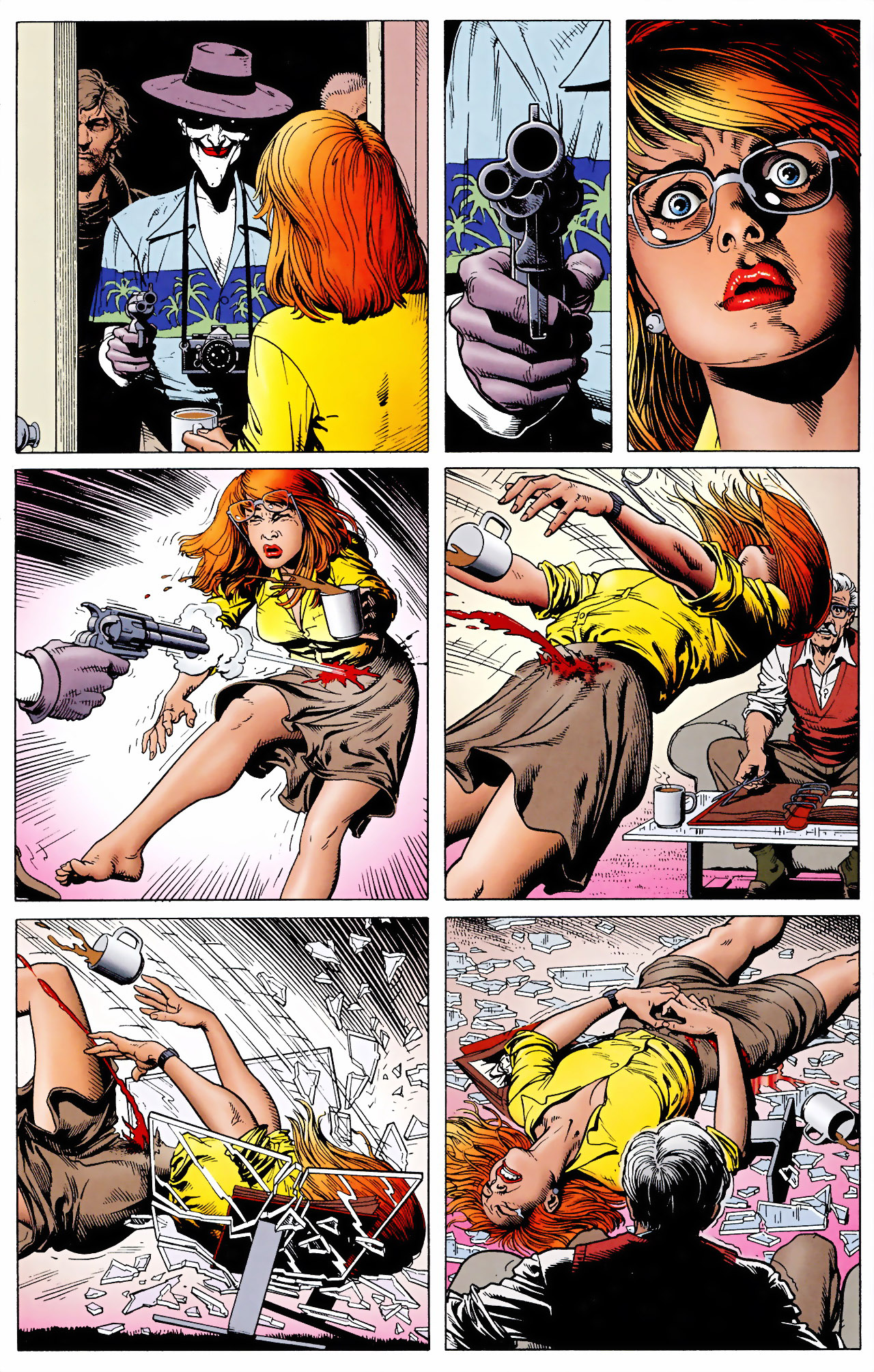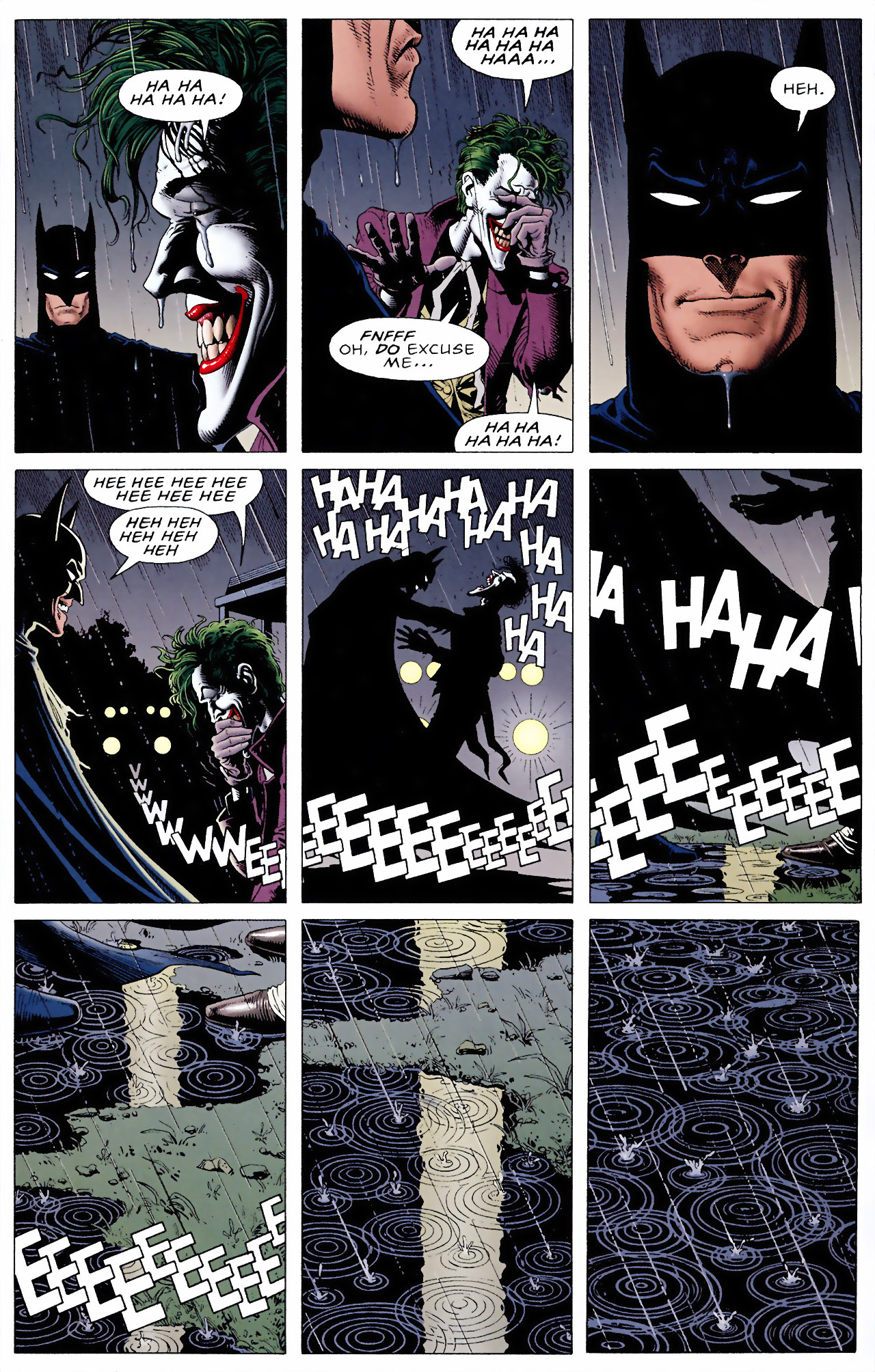The Killing Joke – More Than A Story…A Masterpiece

Of all the acclaimed Batman stories, and there are many, very few have reached the degree of success that The Killing Joke has. The Killing Joke has become a hallmark story and over the course of its existence, is considered one of four seminal stories in Batman’s history. The other three, of course,
Written 30 years ago by Alan Moore, The Killing Joke did more for Batman and The Joker than entire decades of work. The book forever changed the relationship between Batman and The Joker and due to it, generations have forgotten how they once were. The Killing Joke, more than cementing itself as a masterpiece, is a brilliant work of fiction.
But why?
Why is it so special? What is it about The Killing Joke that the most famous animated Joker, Mark Hamill, came out of retirement for when it was turned into a feature film?
The story, like all good stories, begins by capturing the audience before the first few pages are even done.
It begins with Batman visiting his longtime adversary inside the cold walls of Arkham Asylum. He looks to the Joker and tells him, “I’ve been thinking lately about you and me. About what’s going to happen to us, in the end. We’re going to kill each other, aren’t we?”

If this sounds out of the ordinary to you, you’re right, it is. Batman, for all that he is, for the fear that he puts into others, does not kill. While his methods may seem, at times, inhumane, his morals never waiver. Batman does not kill.
But here he is admitting that at some point, he and the Joker will kill each other. This line, this question, immediately sets the tone for the book.
The remarkable thing about The Killing Joke is that it was a one-shot that became canon. The Killing Joke wasn’t designed as something that was going to alter the course of Batman’s history. It wasn’t something that the editors asked for. Nor was The Killing Joke supposed to be anything more than a simple story.
It ended up being each of these and more.
It doesn’t end there
The story did something that very few stories have ever done and would ever do. The story gave The Joker context and backstory.
It beautifully paints a picture of personal tragedy. It illustrates what it means to have lost something. And more than these, it drives home the point that all it takes for one’s life course to change, is one bad day.
The book leaps between
If the story is to be taken as an origin, it paints a picture of a down-on-his-luck comedian who takes a small job in a criminal ring to support his family. Then, at the moment that he is to follow through with it, he learns that his wife and unborn baby have died.
It’s in this moment that the Joker begins to manifest.
From there, no matter how hard he tries to get out of the criminal endeavors, he is forced in. Ultimately, the event goes sour and he is left disfigured and forever changed.
Yes, just One Bad Day
The Killing Joke, along with other well-known stories of the time, changed the way in which comics were written and perceived.
Gone was the goofy Batman that plagued the world for a generation. And with it, goofy Batman comics. The Killing Joke helped usher in a new age of comics – a new age of adult-oriented comics.
And the world is better for it.
The comic industry needed a shake up. For too long it relied on gimmicky angles, foolish stories, and a villain/hero dynamic that continuously fell short.
The Killing Joke addressed all of these and did it with a sledgehammer. There was no subtly involved. It yanked at the head of the industry and came away with a fistful of hairs.
It paid no mind to its predecessors and instead carved out a path all to itself. Like so many political figures in history, it gave a big fuck you to all who opposed it. Best yet, it did so without any worry of ramifications.
Don’t take this out of context. The Killing Joke did not change comics. Or at least not by itself. The Killing Joke opened the doors to comic change.
What makes the story so different from others is that it was a one-shot. It was a story that wasn’t meant to translate into anything. Nothing inside its pages was to be taken outside of its own universe. We call it, as mentioned, canon. The Killing Joke wasn’t supposed to be canon.
That didn’t happen.
It’s legacy was felt by more than just Batman and The Joker.
Barbara Gordon
In a moment as quick as opening a door, Barbara had her life turned upside down. By the hand of the Joker, Barbara was left paralyzed and wheelchair-bound. Remember, all it takes is One Bad Day.
In her apartment, Barbara innocently answered a noise at the door. As she opened it, The Joker stood before her with a once loaded gun. As Barbara fell to the floor, it became apparent that this was only the beginning of her new life.

For decades women were used mainly as a plot device to have men save them. They had become a trope inside the pages of comics…and a trope that angered people all over the world.
Barbara Gordon fed the trope. Oracle, as history would show, started to eat away at it. After the events of The Killing Joke, Barbara, once Batgirl, took on the identity of Oracle. And Oracle was a crime fighters best friend. As Oracle Barbara was responsible for helping her allies on the street. She became a computer and technology genius and used he new skills to aid those around her.
James Gordon
As a result of Barbara’s torture, the most famous Batman sidekick not named Robin was subjected to inexplicable torture. Commissioner James Gordon, the father to Barbara Gordon was kidnaped, brought to a circus, undressed, tied up, gagged, and forced to look at pictures of his naked daughter as she was defiled. This moment in time is so important to Batman’s history that it has been referenced more times than can be counted.
James Gordon.
The cut and dry, methodical, and infallible James Gordon.
The haunting image of Gordon helplessly looking at his daughter was just one more nail in the coffin of One Bad Day.
But did it go too far?
Alan Moore has said that The Killing Joke is not something he is proud of. “I thought it was far too violent and sexualized a treatment for a simplistic comic book character like Batman and a regrettable misstep on my part.”
So much uncertainty
The book, like so many others, sees Batman save the day and prove why he is Batman. However, it isn’t without ambiguity. As the rain pours down on the final pages, Batman looks to his enemy who has just told a joke, cracks a smile and begins to laugh simultaneously by his side.

Decades have passed and this simple chain of events remains an uncertainty in the stories fabled history. Multiple theories have surfaced. Could the crack of laughter elude to the similarity that the two possess? Could it simply be The Joker doing what the Joker does? Or could it be that Moore wanted us to deliberate well after its publication?
I suppose that we will never truly know.
If Dark was the intent, Dark is what was delivered. The Killing Joke for all that it was and did, unintentionally carved out a path that all involved would forever walk.
Great fiction isn’t supposed to wrap up cleanly. Great fiction is supposed to leave its readers thinking, examining, and wondering about the finer details.
This, like so many other points about The Killing
Cheers,
Joel


